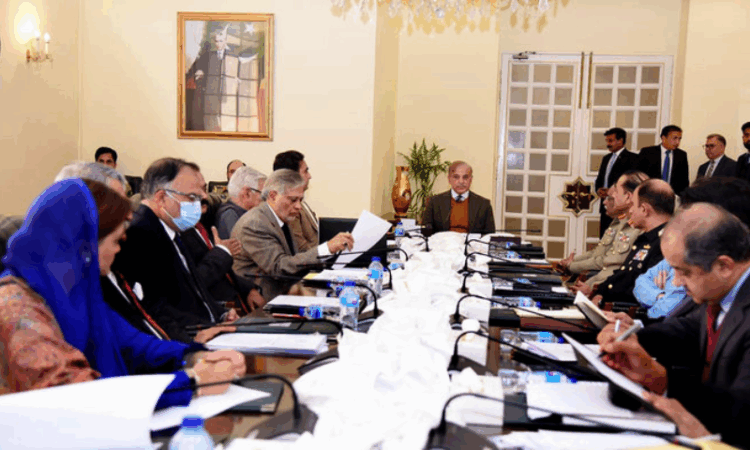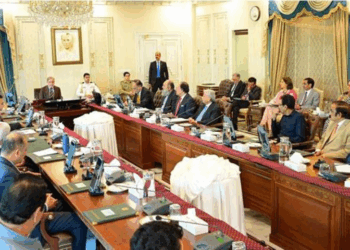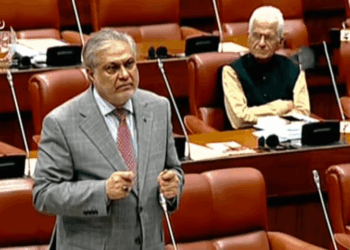Islamabad, April 23, 2025: Defence Minister Khawaja Asif announced on Wednesday that a session of the National Security Committee (NSC) will convene on Thursday to deliberate Pakistan’s response to India’s recent measures, following a deadly attack in the Pahalgam area of Indian Illegally Occupied Jammu and Kashmir (IIOJK).
The Pahalgam incident, which left at least 26 people dead and 17 injured at a popular tourist destination, has prompted New Delhi to take a series of retaliatory steps against Islamabad. These include suspending the Indus Waters Treaty and banning the entry of Pakistani nationals into Indian territory.
“A session of the National Security Committee will be held under the chair of Prime Minister Shehbaz Sharif,” said Asif. “Decisions will be taken to deliver an appropriate response to the Indian steps.”
‘False flag operation cannot be ruled out’
In a separate televised statement, the defence minister reiterated Pakistan’s condemnation of terrorism in all forms and criticized India’s allegations linking Islamabad to the Pahalgam attack.
“India’s allegation against Pakistan for the Pahalgam incident is inappropriate,” Asif said. “As the nation most affected by terrorism for decades, Pakistan rejects these baseless accusations.”
He added that while Pakistan remains committed to combating terrorism, the possibility of a false flag operation by India “cannot be ruled out.” Asif emphasized that Pakistan is fully prepared to respond to any aggression, reminding the public of the 2019 Operation Swift Retort, during which Indian pilot Abhinandan Varthaman was captured by Pakistani forces.
The minister further accused India of harboring separatists and facilitating terrorism within Pakistan. “Evidence links India to the Tehreek-e-Taliban Pakistan (TTP) and confirms that Indian consulates in Afghanistan have supported anti-Pakistan activities,” he claimed.
Echoing similar concerns, senior PML-N leader and senator Irfan Siddiqui denounced the Pahalgam incident as a “false flag operation” allegedly orchestrated by the Indian military.
Speaking at a book launch at Alhamra Hall, Siddiqui alleged, “India has a history of staging such events, especially around the visits of foreign dignitaries, to malign Pakistan.”
He also criticized India’s continued military presence in Kashmir, claiming that around 500,000 troops are stationed in the region and that the government continues to commit human rights violations under the guise of counter-terrorism.
India revoked Jammu and Kashmir’s special constitutional status in August 2019 and divided the region into two federally administered territories—Jammu and Kashmir, and Ladakh. Despite ongoing unrest, the area attracted approximately 3.5 million tourists in 2024.








